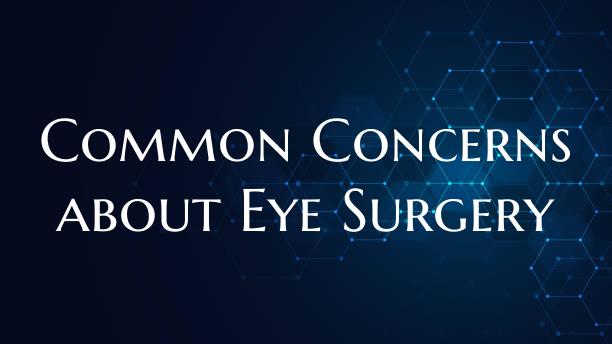
Common Concerns about Eye Surgery
Eye surgeries have become increasingly common and advanced in recent years, offering solutions to a wide range of vision problems. Despite the benefits they provide, many people have understandable concerns when considering undergoing eye surgery. In this article, we address some of the most common concerns surrounding eye surgery to help alleviate any anxieties you may have.
1. Fear of the Unknown: One of the primary concerns individuals have about eye surgery is the fear of the unknown. The thought of someone operating on your eyes can be daunting. It is important to research the specific procedure you are considering, understand how it works, and consult with your eye surgeon to address any questions or uncertainties you may have.
2. Potential Risks and Complications: Every surgical procedure carries some level of risk, and eye surgery is no exception. Some common risks associated with eye surgery include infection, dry eyes, overcorrection or undercorrection of vision, and in rare cases, vision loss. However, it is essential to remember that the incidence of serious complications from modern eye surgeries is low, and choosing a skilled and experienced surgeon can significantly reduce these risks.
3. Recovery Process: Another concern many individuals have is the recovery process following eye surgery. Depending on the type of surgery you undergo, recovery times can vary. It is crucial to follow your surgeon's post-operative care instructions diligently to optimize healing and achieve the best possible results. Most patients experience mild discomfort, blurred vision, and sensitivity to light during the initial recovery period, which typically improves within a few days to weeks.
4. Cost of Eye Surgery: The cost of eye surgery can be a significant concern for many people, especially if it is not covered by insurance. It is essential to understand the total cost of the procedure, including pre-operative evaluations, surgery fees, post-operative care, and any necessary medications. Some insurance plans may cover certain types of eye surgery, such as cataract surgery, but elective procedures like LASIK are generally not covered. Many eye clinics offer financing options to help make surgery more affordable for patients.
5. Long-Term Results: A common concern among individuals considering eye surgery is the long-term efficacy of the procedure. While many eye surgeries, such as LASIK, are considered permanent, some conditions may require additional procedures in the future. It is essential to discuss the expected outcomes and potential risks of the surgery with your surgeon to set realistic expectations and ensure you are well-prepared for the long-term management of your eye health.
In conclusion, while it is natural to have concerns about undergoing eye surgery, staying informed, choosing a reputable surgeon, and asking questions can help alleviate these worries. By understanding the process, risks, and expected outcomes of the surgery, you can make an informed decision about whether eye surgery is the right choice for improving your vision and overall quality of life.